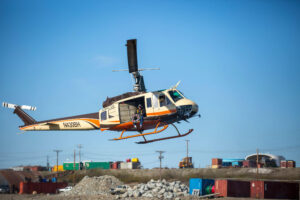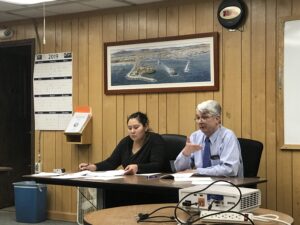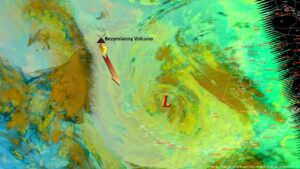Just as 2019 ended as the warmest year ever measured in Alaska, students in the villages of Shishmaref, Hooper Bay, and St. Michael had an extended holiday break due to frozen pipes.
At the school in Shishmaref, the frozen fire suppression system leaked, creating icicles growing from the ceiling.
In Nome, Ken Morton from the local utility service recently reminded KNOM listeners to brace for higher electricity bills. In one example, he estimated that a small space heater can add $12 a day to residents’ bills.
Still, the additional expense may be worth it. In less than a week, the local repair company Tundra Tinkerer had serviced more than ten incidents of frozen pipes. Fixing burst pipes is a major and expensive repair.
Until temperatures plummeted in January, the Norton Sound had its warmest year ever in 2019 with very low sea ice formation. As sea ice provides access to the region’s main food supply, locals are concerned about its delayed formation.
Image at top: A photo of construction workers at the school in Shismaref last summer. An extended cold snap has been felt in communities across Western Alaska, and kept some schools from re-opening after Christmas.





